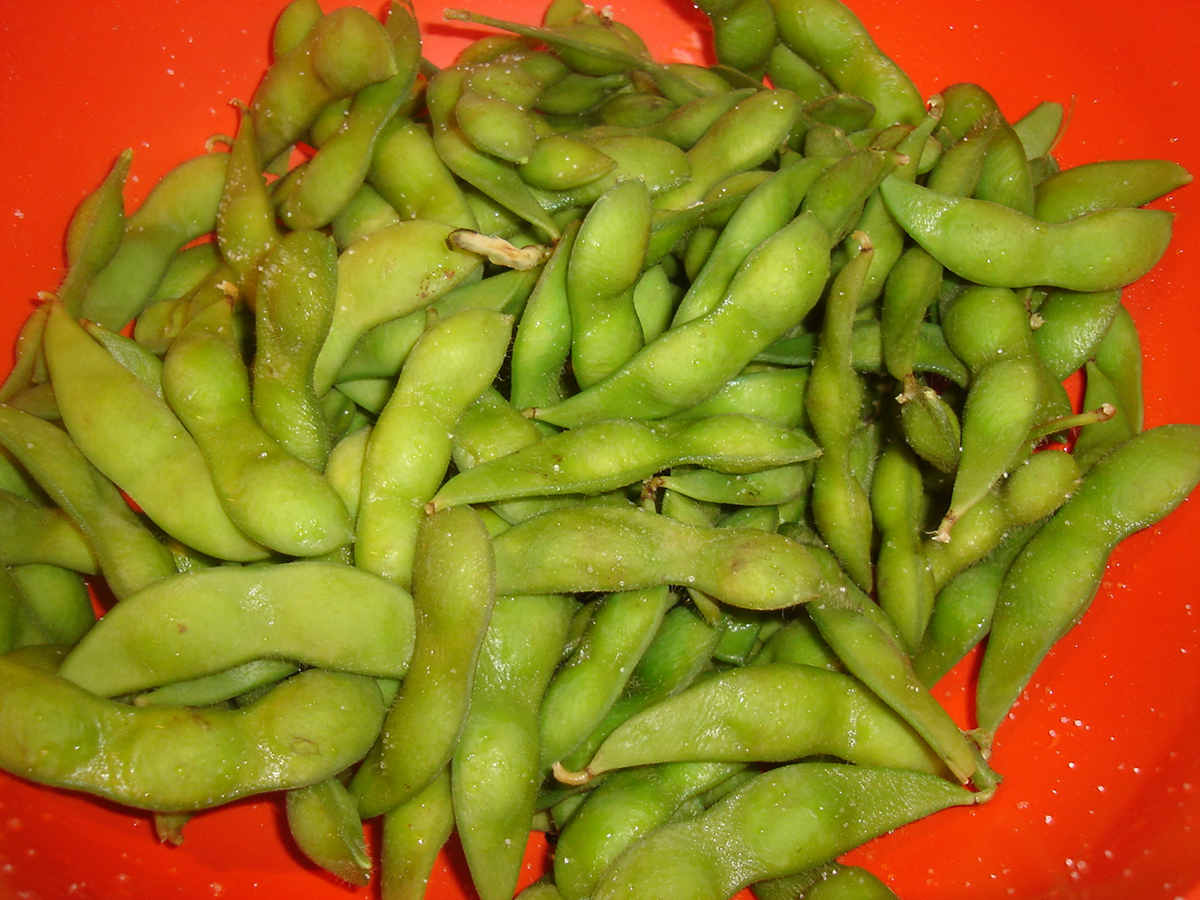Table of Contents
Soybeans originally come from South-East Asia, where the Chinese cultivated them as far back as 1100 BC. China is also where a British colonist Procured soybean seeds, trying them out in what was then the British colony of Georgia in 1765. Reportedly, even Benjamin Franklin tried them out!
I knew none of this when I first tried soybeans, both roasted and in the form of tofu — rather, being a vegetarian, I picked these things up in a health food store in Holland, where I live, probably 20 or so years ago. I'm a vegetarian, and tofu was recommended as a great source of protein as well as a "meat replacer", along with seitan.

Growing up in a boring meat-and-potato family, as a new vegetarian I learned a lot from my weird aunt, who had spontaneously decided to quit meat when she was in her teens, something that was highly unusual back then. It took me a few years until I realized that tofu could be dressed up to taste awesome, rather than being a bland slab or white nutrition that I merely tolerated because everyone said I needed the protein. Tempeh and Miso were later added to my list of soy products as well.
Things have changed in the meantime. Hipsters now order soy milk-based smoothies from juice bars, tofu is ever-present in Chinese fast food restaurants, vegetarian sausages made of soybeans have become a staple in my diet, and I recently tried out edamame — young soybeans still in their pods — steamed with coarse sea salt in a sushi restaurant. Soy, it's clear, is everywhere these days.
Why Do People Incorporate Soy In Their Diets?
The nutritional value of soy varies depending on the form in which you are consuming it. Regardless, all soy-based products contain:
- Protein
- Dietary fiber (yes, even the milk in small amounts)
- Polyunsaturated fats and monounsaturated fats
- Potassium
- Calcium
- Iron
- Magnesium
READ Is Soy Milk Better Than Cow's Milk?
I've always known soy as a food that's ideal for vegetarians and vegans, due to its protein, iron and calcium. Its fiber makes it ideal for people suffering from constipation as well, and it's great for people with type 2 diabetes and high cholesterol levels as well.
- Photo courtesy of mdid: www.flickr.com/photos/mdid/829877544/
- Photo courtesy of rusty_clark: www.flickr.com/photos/rusty_clark/8320024006/
- www.ncbi.nlm.nih.gov/pubmed/18583909
- humrep.oxfordjournals.org/content/23/11/2584.full
- www.menshealth.com/nutrition/soys-negative-effects
- www.bbcgoodfood.com/howto/guide/ingredient-focus-soya
- www.cancerresearchuk.org/about-cancer/type/breast-cancer/about/diet-and-breast-cancer#soya
- www.webmd.com/food-recipes/truth-about-gmos?page=2
- www.gmo-compass.org/eng/grocery_shopping/crops/19.genetically_modified_soybean.html


Your thoughts on this